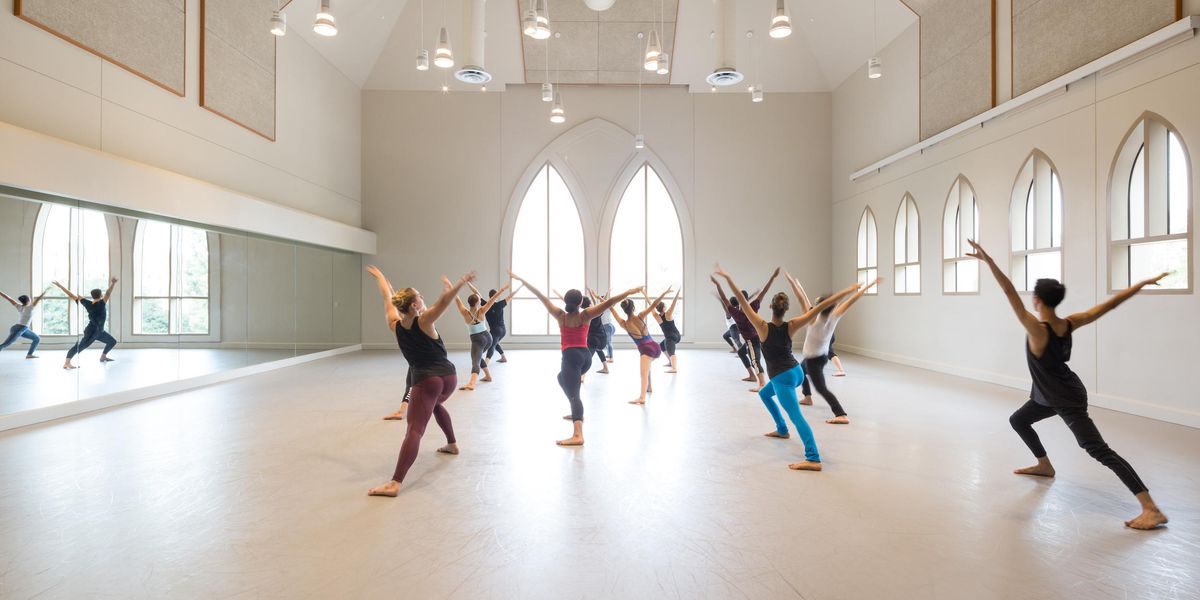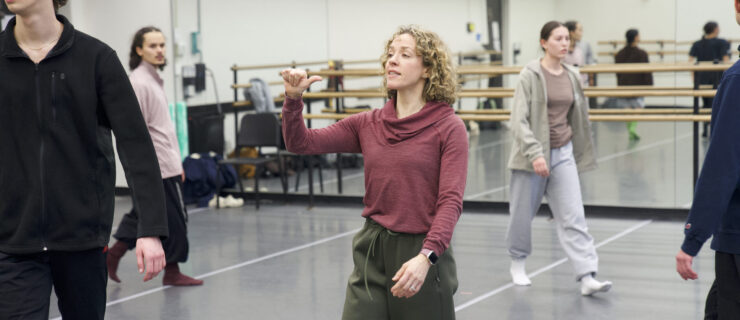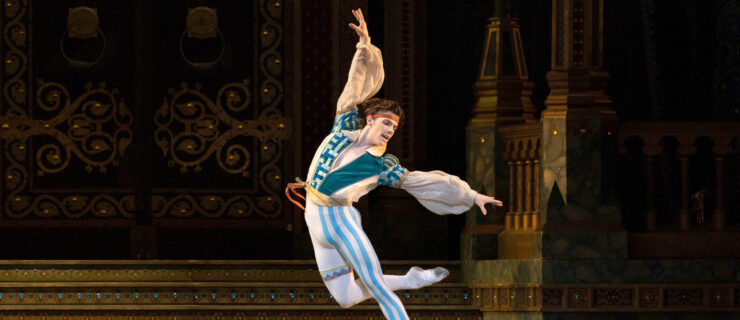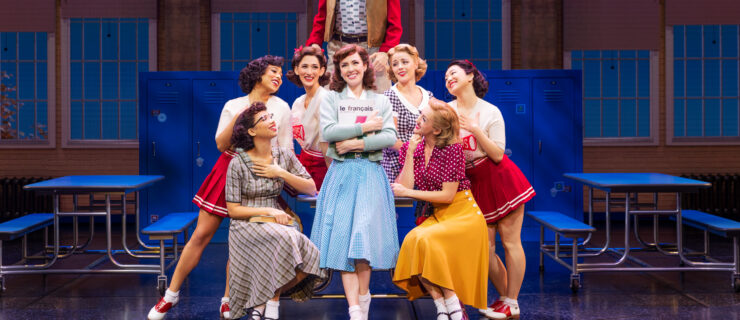Final Bow
Embrace the last step of your career.
Jenifer Ringer after her retirement performance in Balanchine’s Union Jack. Photo by Paul Kolnik, Courtesy NYCB.
For a BalletMet performance in April 2014, Carrie West danced principal roles in both Balanchine’s
Symphony in C and Edwaard Liang’s Wunderland. But she had no idea this would lead to the end of her performing career. During a dress rehearsal, West tore her meniscus. She was scheduled for a routine surgery, but the surgical team applied microfracturing without her approval, resulting in a much more dubious recovery. At age 39, simple fondus and relevés on one leg proved nearly impossible. “I could fake my way through class and rehearsals but I’d get home and barely be able to walk,” says West, who performed with BalletMet for 17 years. “My husband would look at me and go, ‘Y’know, maybe enough’s enough?’ ” Artistic director Liang offered to let her dance a final performance with modified choreography, but she declined. Her past season had been extremely satisfying, with roles like Odette/Odile. “I felt at the top of my game,” she says. “I didn’t want my last memory onstage to be something less.”
Retirement is one of the hardest decisions a performer will make in their career. There’s no right answer to the question
of when to retire. But there are ways to make the transition out of dance as rewarding as possible.
New York City Ballet’s Jenifer Ringer always had an idea in the back of her mind that she would retire at 40. As she turned 39, she began weighing what it took to sustain ballerina excellence against her real-life needs. The former principal dancer’s checklist read: “How is my body this morning? What foods am I eating? Did I get enough sleep? Can I jump over that puddle or will I be out for the show tonight?
Can I run after my child on the playground or will that burn out my legs?” In 2013 she decided to put those questions to rest, to appreciate the lifespan of her career, to maximize time spent with her two children and to let younger dancers have a shot at stardom.
When weighing the decision to retire, West feels that dancers should draw the line at compromising the integrity of their art. “If I couldn’t lose myself in that role because I’m concerned about an injury, then it’s not worth it to me or the audience,” she says. “If it’s not going to happen, then you have to step aside.”
Coming to terms with your decision to retire can be difficult, but taking charge of the way you say good-bye can ease the blow. When Eddie Taketa, now 57, retired from Doug Varone and Dancers in 2015, he didn’t want any grand fanfare:
“I never needed to mark it with any kind of ritual,” he says. “But everyone around me was acknowledging it and celebrating it. I realized I needed to process it.”
NYCB ballet master in chief Peter Martins was surprised when Ringer told him of her retirement decision and even more surprised that she wanted to exit with a performance of Jerome Robbins’
Dances at a Gathering and Balanchine’s Union Jack. Ringer recalls him saying, “Are you sure you want to take your last bow in your button costume? Don’t you want the ballerina moment with the pink dress and the glamour?” She chose Balanchine’s tribute to the U.S.’ British heritage because of its frivolity and its inclusion of the entire company. “That’s how I started—loving dance and being silly,” she says. “What a great way to end—loving dance and being silly.”
Retirement doesn’t have to mean leaving the dance world entirely. Many dancers find meaning in post-performance life by teaching. Ringer, who moved with her family to Los Angeles after retiring and accepted the position of director of Colburn Dance Academy, suggests that dancers “meet retirement head-on” and “approach it with your eyes open.” She wants dancers to fully appreciate their careers as they unfold rather than fret about getting the right roles. “It would be such a shame if, when you stop dancing, you realize that you spent your whole career dissatisfied with what you got,” she says. “It’s important to know that it will end someday and to think about ending it as gracefully as when you are in it.”




